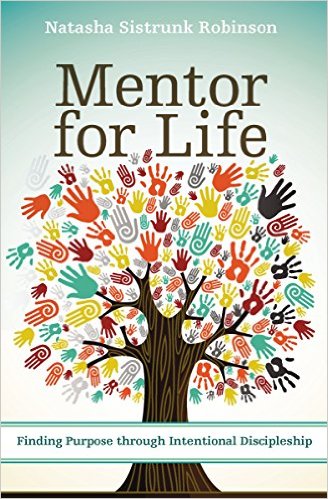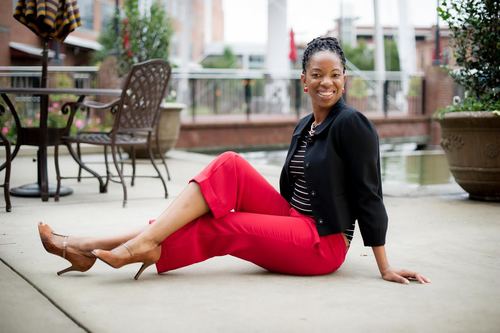
In this excerpt from her book Mentor for Life, author Natasha Sistrunk Robinson discusses relational connections and finding purpose.
Understanding our identity in Christ gives us purpose. God has a specific purpose for each of us, a unique calling for every individual. Our shared and primary purpose is to become disciples (followers) of Jesus Christ. Our secondary callings are unique and are birthed out of our submission to the primary calling. The body of Christ misses out when we attempt to force all women into one constrained understanding of the role and responsibilities of women. Christ’s transformation does not mean we blindly do as other good and godly people say we should. If we are simply content to go along just to get along, we will never come to realize our true purpose in life. A great mentor and a safe community of believers will consistently point us to Christ and challenge us to follow him as we seek clarity on our faith journeys. A godly mentor models Christ’s character, while calling us to completely surrender our will and desires to God’s will for our lives.
God is the creator of all things, and his creative vision is big enough to include women from all walks and stages of life, from different backgrounds and cultures. His kingdom purposes transcend generations. His will is big enough to include young girls like Rhoda, who commit themselves to prayer, and virgins like Mary, the young mother of Jesus. His plans are big enough for women like Elizabeth, Rachel, and Hannah—all of whom experienced prolonged seasons of infertility. His purposes include women with pagan pasts like Ruth, prostitutes like Rahab, and rejected, widowed, or adulterous women like the Samaritan woman at the well. He sees marginalized and enslaved women like Hagar, and old women like the prophetess Anna. We compassionately embrace women like these because God’s purpose and plans include all of them. God’s purpose includes you as well!

Sadly, we live in a world where women constantly receive messages that communicate, You are not valuable: You’re not smart enough for this job or capable enough to earn that amount of income. You are not skinny enough to fit into those jeans. You are not attractive enough to date that guy or to have a man fully commit to only you. You’re not competent enough to be a leader. You are not a great parent. You are not an excellent wife. And when we are insecure or feel inadequate, it is easy to degrade or reject women who are either more confident than we are or who have made different choices from our own. This rejection somehow makes us feel better about ourselves and more comfortable with our choices, if only for a moment.
Does this happen in the church? Of course it does. This monster rears its ugly head in the guise of comparison and envy. In a shallow attempt to feel better about ourselves, women play games of one-upmanship. This intragender division referenced in Dr. Cleveland’s research reveals that we lack confidence in our own skills, abilities, and choices, and our identity in Christ is not secure. As a result, we add to the mounting list of things our sisters in Christ “should” be doing to gain our approval and acceptance. Young, single girls should go to college or to the mission field. Married women should have children (and the more they have, the better). Mothers tend to get an extra wink for staying at home or choosing to homeschool. And what about the multitudes of women—some lost, some barren, some college students, some single, some old, some divorced, some widows, some single mothers—who come to church and sit on the sidelines waiting for someone to notice them and invite them in? These women are no different from me in that they want embracing and they need encouragement and direction concerning their role in God’s kingdom.
The more I learn, the better I understand that God reveals his will for each of our lives in very specific ways at opportune times. In my own life, I find he often clarifies direction within the context of Christian community. In other words, my spiritual gift of leadership was not given to me so I can have a long title behind my name or earn a great paycheck. Don’t get me wrong; those can be nice benefits. The gifts of God, however, are given for serving the people of God, and it is for this reason and purpose that I labor. There is a significant difference between living my life on purpose and aimlessly moving through life without direction. I am able to do the former because I have been embraced and nurtured within Christian communities where God was clearly at work. First, I committed to the primary calling of being a disciple and follower of Christ, and only then did I get clarity about my purpose or role in God’s kingdom.
Excerpt from Mentor for Life (Zondervan, 2016) by Natasha Sistrunk Robinson—www.natashasrobinson.com.
(via Hope for Women)










